Writers Association Calls For Global Support For Iranian Protesters

The Iranian Writers Association is urging people and organizations around the world to support the Iranian protesters by becoming their voice and advocating for their rights.

The Iranian Writers Association is urging people and organizations around the world to support the Iranian protesters by becoming their voice and advocating for their rights.
In a statement issued on Saturday, the association condemned the crackdown on street protesters, the wave of arrests, instances of torture and intimidation, and the imposition and execution of death sentences by the Iranian government. They further noted the ongoing oppression faced by women in various forms and the discriminatory working and educational environments for those who protest the compulsory hijab.
The association emphasized the importance of collective action in overcoming the challenges imposed by the government and called for a unified effort to address the issues faced by the Iranian people.
Earlier this week, a UN-mandated fact-finding mission made a plea to Iran to halt the execution of individuals sentenced to death for their involvement in the country's past anti-government protests. The mission urged Iranian authorities to provide access to judicial files, evidence, and judgments related to these individuals.
According to the fact-finding mission's report, the claim by Iranian authorities that 20,000 arrested protesters have been pardoned suggests that the actual number of detainees surpasses this figure. The report also highlighted the shocking execution of seven protesters and expressed concern over reports of coerced confessions obtained through torture.
The Iranian Writers Association's call for global support aims to shed light on the plight of Iranian protesters and detainees, seeking justice and an end to the ongoing violations of human rights in Iran.
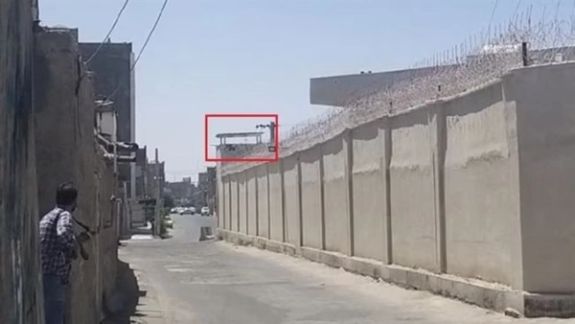
An attack on a police station in Zahedan, a Sunni-majority city in Iran, claimed the life of two policemen, amidst lack of clarity about the incident.
According to Iranian law enforcement officials in Sistan-Baluchistan province, four gunmen attacked the police station using hand grenades and seized control of a watchtower. The attack was still ongoing as of noon local time. In early afternoon, officials said that all four gunmen were eventually killed and the situation around the heavily protected police compound returned to normal.
These circumstances suggest that since the attack began at around 7:15 am, it took hours to subdue the gunmen. This raises questions about whether the details provided by the authorities accurately represented the event.
Other reports have mentioned one or two suicide bombers detonating explosives to create an entry point for others into the heavily guarded premises. However, police officials insist that there were no suicide bombings and only hand grenades were used.
Tensions in Zahedan have been high since security forces, under the command of the Revolutionary Guard, killed an estimated 80-90 civilian protesters in the city on September 30, 2022, marking the start of anti-regime nationwide protests in Iran. This tragic event became known as Black Friday.
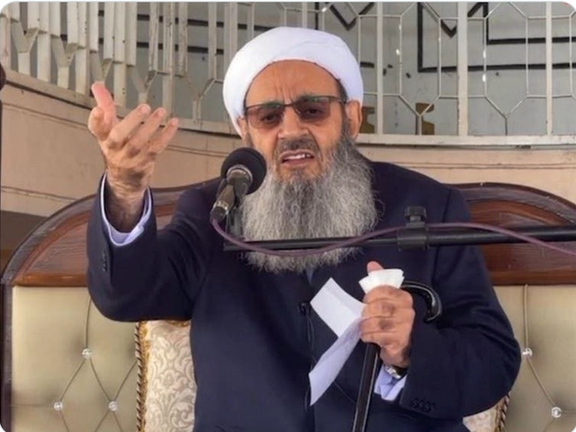
Since then, the people of Zahedan have been participating in peaceful demonstrations every Friday after prayers and sermons by their respected religious leader, Mowlana Abdolhamid.
One hour after the attack began, Abdolhamid disassociated himself from the incident and called for peace and security. However, some speculate that the authorities can use the incident to restrict his freedom, possible putting him under house arrest.
The authorities have attempted to intimidate and silence Abdolhamid, who has strongly criticized the rulers of the Islamic Republic in his sermons. He has called for a referendum on the future of the country, respect for women, the release of political prisoners, and genuine elections.
The government has failed to launch a proper investigation into the mass killings that occurred during Black Friday, which has been one of Abdolhamid's demands. No security officials have been arrested or suspended.
Some reports suggested that the police station - precinct #16 - was the compound from where security forces opened fire on September 30, 2022, because it was close to the main mosque where people began their protest march.
Although incidents of attacks against security forces have occurred in the impoverished and desolate province for years, the general population has remained peaceful. On June 30, Zahedan residents held a silent march in the city.
In this instance, no one knows who the attackers are and it cannot be ruled out that the whole incident could have been staged by security and intelligence organs to clamp down on Zahedan's residents and particularly Abdolhamid.
In recent weeks, the regime has escalated pressure on the outspoken cleric by arresting several individuals from his inner circle and supporters. Additionally, Abdolhamid has been prevented from leaving Iran for the annual Hajj pilgrimage in Saudi Arabia.
In June, his grandson and several aides were arrested. The Makki Mosque, Abdolhamid's headquarters in Zahedan, has become a center of resistance against the government since September 2022. It is where Abdolhamid delivers his weekly sermons, openly criticizing Supreme Leader Ali Khamenei's regime.
These arrests followed reports that the Revolutionary Guard's intelligence arm had assigned a hitman to poison and kill the prominent Sunni cleric. Security guards at Makki Mosque apprehended a man posing as a religious student who allegedly intended to assassinate the Sunni leader.
Last updated at 16:00 GMT, July 8
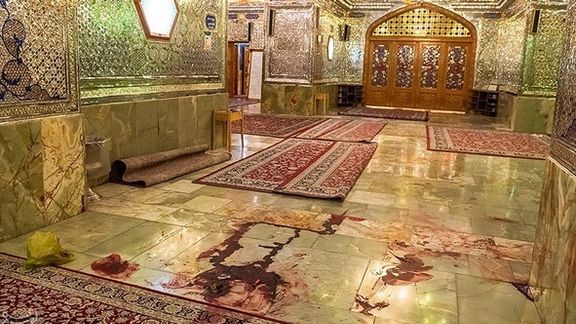
Iran hanged two Afghan men in public on Saturday who were accused of playing a role in an attack on a shrine in October where 15 people died and 20 were wounded.
Mohammad Ramez Rashidi and Naeem Hashem Ghetali were hanged in a street near the Shahcheragh Shiite shrine and mausoleum in the southern city of Shiraz early in the morning. Iran's official news agency IRNA said they were hanged before dawn with “hundreds of the families of the martyrs” and other citizens of Shiraz witnessing the executions.
The attack on Shahcheragh shrine took place October 26 last year when anti-regime protests were raging on in Iran. This led to speculations and accusations that the attack was staged by the government to divert attention from the protests and also justify a crackdown.
However, in a strange twist, the Islamic State group took responsibility for the attack, which fit the government narrative of Iran being under attack by extremists.
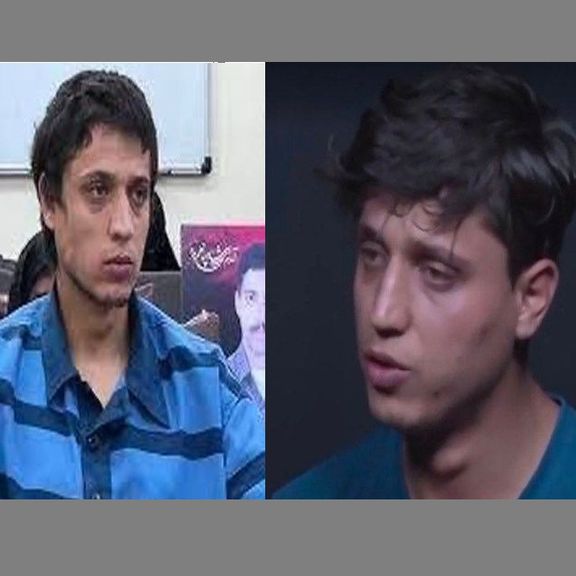
The lone gunman, who entered the shrine with an assault rifle, was shot and wounded during the attack and the government said he died later in the hospital and identified him as a citizen of Tajikistan. The two men who were hanged July 8 were accused of playing a direct role in the "arming, procurement, logistics, and guidance of the main perpetrator" of the terrorist attack.
Iranian human rights groups have said that the trial of the two men was not held according to legal standards and their conviction and subsequent death penalties were illegal.
Mahmood Amiry-Moghaddam, director of Norway-based Iran Human Rights, said Thursday that the two Afghan nationals were sentenced to death after “grossly unfair trials where no evidence was presented against them.”
Documents released by a hactivist group in early December showed that the Revolutionary Guard might have has foreknowledge of the attack and did nothing to stop it.
The documents, released by hacking group Black Reward, were several reports prepared by the IRGC’s media arm, Fars news agency, which were marked “top secret” and indicated that the author believed at least parts of Iran's several intelligence organizations had knowledge of an imminent terrorist attack but did not take any action to stop it.
Many Iranians immediately after the attack began accusing the regime of organizing the terror act as some kind of distraction from the boldest and most widespread protests in 43 years of clerical rule. Some even alleged that the government of complicity with ISIS in the attack to create its own narrative and martyrs to divert attention from fierce anti-regime protests.
CCTV footage shown on state TV showed the gunman entering the popular shrine despite the usual heavy security measures with a weapon and firing at worshippers as they tried to flee and hide in corridors.
The attacker, identified as Sobhan Komrooni with the nickname “Abu Aisha”, a citizen of Tajikistan, later died in a hospital from injuries sustained during the attack, according to the government.
Iran's intelligence ministry in a statement in November claimed that a citizen of the Republic of Azerbaijan who was the “main element of directing and coordinating the attack” had flown from Baku and entered Iran through Tehran’s Imam Khomeini Airport. According to the statement, he had then contacted the ISIS network of foreign nationals in Iran and organized the attack.
Some people at the time also noted a similarity with a 1994 terrorist attack on the shrine of Imam Reza in Mashhad which killed and injured dozens of people. Although a Sunni group had claimed responsibility, the government laid the blame on the People’s Mujahedin Organization of Iran (MEK). However, the former Interior Minister Abdollah Nouri claimed during his trial in 1999 that it was a false flag operation by the Iranian regime to discredit MEK.
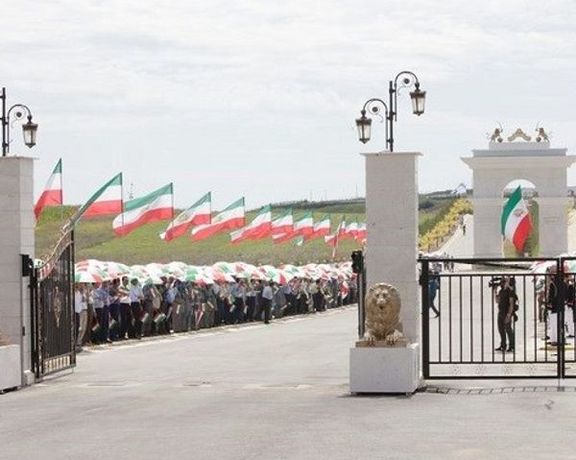
Albania has denied Tehran's claim that the computers seized from the exiled opposition group MEK during a police raid have been handed over to Iran.
The Albanian police informed Iran International on Friday that they had not contacted the Iranian government or any Iranian citizens as part of their investigation into the group's activities.
This contradicts an earlier claim made by a spokesperson for the Iranian government, who stated that several electronic and storage devices seized during the recent Albanian police raid on the MEK's Camp Ashraf had been handed over to Iran's regime.
The Iranian official alleged that the Islamic Republic is now retrieving data from the devices to identify the group's cells and has achieved "promising" results thus far.
On June 20, the MEK reported that around a thousand Albanian police officers raided their exile center, Camp Ashraf, using tear gas and pepper spray. The group stated that one of their members, identified as Ali Mostashari, was killed, and over a hundred others were injured.
Albania later admitted that both police officers and Iranian dissidents were injured during the raid at the Ashraf-3 camp near Manze, a small hill-town approximately 30 kilometers (about 20 miles) west of Albania's capital.
However, the authorities disputed the claim that the raid directly caused the man's death.
The Camp Ashraf 3 compound in Durres, Albania, serves as the MEK's first home outside the Middle East. It was established a few years after the 2013 massacre in the original camp in Iraq, in which 52 members died and seven went missing, leading to the relocation of the group.

As Europe says it will retain sanctions on Iran over its missile programs, the regime’s foreign minister says talks have begun with three European powers.
Iranian Foreign Minister Hossein Amir-Abollahian made the claim in an interview with Chinese TV channel Phoenix following Thursday's UN Security council’s session to discuss Iran’s nuclear advancements and its arms supply to Russia as well as Tehran joining the Shanghai Cooperation Organization (SCO).
“In the past several weeks, Iran has started talks with three countries of Germany, France and England,” he said, noting that “talks started in Norway and recently continued in Abu Dhabi, in the United Arab Emirates.”
Amir-Abollahian expressed hope that these talks are aimed at overcoming “misunderstandings,” paving the ground for the Islamic Republic and the E3 countries (France, UK and Germany) for “better interaction and cooperation.”
What the top Iranian diplomat described as “misunderstandings” are the implementation of the UN resolution 2231, which endorsed the 2015 nuclear deal. As part of the defunct agreement, UN sanctions imposed on the regime over its ballistic missile program are set expire in October, but the three European parties of the accord argue that Iran has violated the pact, therefore the sanctions should remain in place.
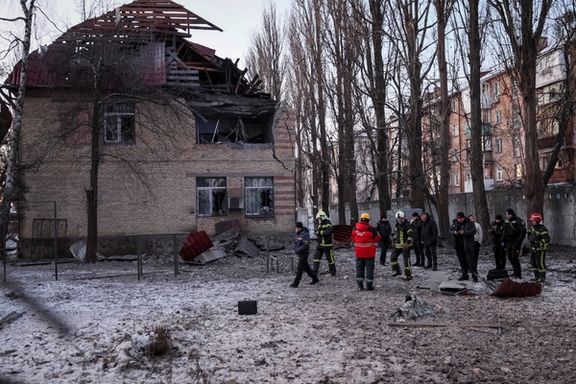
They base their argument on evidence that proves Iran is supplying weapons for the Russian invasion of Ukraine – on which Iran should have coordinated with the UN Security Council – and on IAEA reports that prove Iran is stockpiling highly-enriched uranium beyond the levels allowed in resolution 2231.
Amir-Abdollahian did not mention the drone supplies to Russia but Iran has maintained an ambivalent approach about its military dealings with Moscow. While it keeps repeating claims that Iran supports peace in Ukraine, it argues that the drones were sold to Russia before the invasion began, despite colossal amounts of evidence, including multiple Iranian Shahed drones shot down over Ukraine. In the latest development, satellite imagery indicates that the regime has also set up a drone manufacturing line in Tatarstan Republic to jointly produce the drones with Russia.
Western navies have also seized multiple shipments of Iranian arms in the Persian Gulf waters apparently destined for Houthis in Yemen, including in one instance missile and drone parts, in violation of existing UN sanctions.
At the same time, Rosemary DiCarlo, Under-Secretary-General for Political and Peacebuilding Affairs, said that during the Security Council’s session on Thursday, Iran and the Russian Federation claim there was no evidence linking the intercepted vessel and its cargo to Iran, and no clear indication that the seized components were of Iranian origin.
Amir-Abollahian's remarks also followed a phone call with the EU’s foreign policy chief Josep Borrell who warned the Iranian foreign minister against arms supplies to Russia. The European Union, multiple European countries and the United States have been warning Iran against supplying weapons to Russia since its Shahed Kamikaze drones were deployed by Moscow last year against civilian and military targets in Ukraine. So far, Russia has launched hundreds of these loitering munitions, mostly against infrastructure and centers of population.
Iran's FM also said in the interview that the Ebrahim Raisi administration is following two courses of action simultaneously to deal with the sanctions. “The first path is to try to neutralize the sanctions and the other path is to try to cancel the sanctions using the tools of diplomacy and negotiation. We move in both directions,” he said.
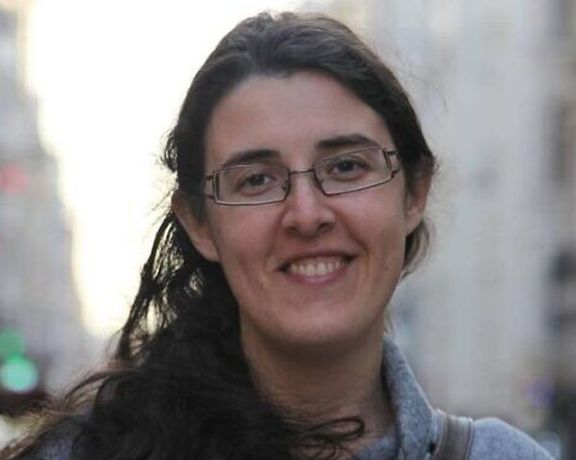
The Islamic Republic has been involved in the abduction in Iraq of a Russian-Israeli academic, an Iraqi official has told Israeli media.
While the Iran-backed militant group Kata'ib Hezbollah has denied any involvement in the kidnapping of Elizabeth Tsurkov, a Russian-Israeli academic and a PhD student at Princeton, an Iraqi official told Israel's Channel 11 that Elizabeth Tsurkov was arrested by Iraq's intelligence service - or someone posing as such - before being handed to Iran-backed Kata'ib Hezbollah which has been holding her for months.
On Thursday, a commander of the Iran-backed group had denied any involvement in the abduction. The Iraqi government spokesman also told Reuters on Friday that investigations are being carried out into the incident.
An expert on regional proxies across the Middle East including Turkey's proxies in Syria, she had traveled to several of the region's terror hotspots. Israel's Prime Minister's Office released a statement which confirmed Tsurkov is still alive, adding that the situation is being handled by the relevant bodies in Israel.
Tsurkov's mother Irena said they lost contact two months ago. "From what I had known until today, she was in Turkey, working on her research for Princeton. I didn't even know she was in Iraq," she told Israel's N12 News.
Israeli citizens are forbidden from traveling to Iraq — an enemy state where Kataib Hezbollah is one of the most powerful Iran-backed militia groups, with a history of attacking US targets in the area.